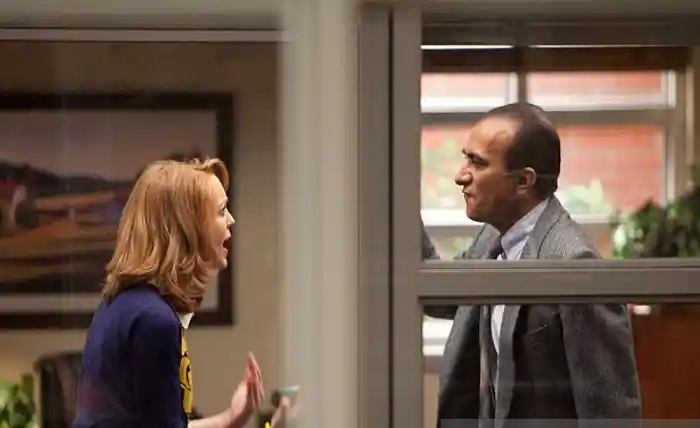Emma Argue with Principal Figgins: A Comprehensive Analysis

Emma Woodhouse and Head Figgins are two of the most notorious characters in the famous TV program Merriment. Emma is a life coach at William McKinley Secondary School, while Figgins is the head. The two characters have a complicated relationship, frequently conflicting on their various ways of thinking about schooling and understudy discipline.
One of the most paramount episodes of Happiness includes a contention between Emma and Figgins. In the episode, Emma is disturbed that Figgins has suspended an understudy for a minor infraction. She accepts that Figgins is too unforgiving and that he ought to be more permissive with understudies.
The two characters have a warm contention, with Emma blaming Figgins for being withdrawn from the necessities of understudies. Figgins, thus, blames Emma for being gullible and optimistic.
The contention between Emma and Figgins is something beyond an individual question. It mirrors a bigger discussion about the job of schools in the public eye and the most effective way to train understudies.
Emma’s Perspective
Emma accepts that schools ought to be a protected and steady climate for all understudies. She accepts that understudies ought to be offered the chance to gain from their slip-ups and that they ought not be rebuffed too brutally for minor infractions.
Emma is likewise serious areas of strength for an in supportive equity. Helpful equity is a way of thinking of equity that spotlights on fixing the damage brought about by wrongdoing and struggle. Emma accepts that schools ought to utilize helpful equity practices to manage understudy discipline issues.
Principal Figgins’ Perspective
Head Figgins accepts that schools have an obligation to keep everything under control and discipline. He accepts that understudies should be considered responsible for their activities and that they ought to be rebuffed for disrupting the norms.
Figgins is additionally worried about the security of understudies and staff. He accepts that it is critical to have severe guidelines set up to stop troublesome way of behaving and brutality.
The Argument
In the episode, Emma and Figgins squabble over the suspension of an understudy named Jacob Ben Israel. Jacob was suspended for carrying a blade to school.
Emma accepts that Jacob’s suspension was excessively brutal. She contends that Jacob is a decent understudy who committed an error and that he ought to be allowed a subsequent opportunity.
Figgins, then again, accepts that Jacob’s suspension was fundamental. He contends that Jacob put the security of different understudies in danger and that he should be considered responsible for his activities.
Analysis
The contention among Emma and Figgins brings up various significant issues about understudy discipline. Is it more vital to be correctional or helpful? How might we guarantee that understudies are considered responsible for their activities while likewise furnishing them with the help they need?
The episode likewise features the various jobs that Emma and Figgins play in the school. Emma is a life mentor, and that implies that her essential job is to help understudies and assist them with succeeding. Figgins, then again, is the head, and that implies that he is liable for keeping everything under control and discipline in the school.
Conclusion
The contention among Emma and Figgins is a mind boggling one, with no simple responses. The two characters have substantial perspectives. It is vital to gauge the alternate points of view cautiously while settling on conclusions about understudy discipline.
FAQ
Q: Why was Jacob Ben Israel suspended?
A: Jacob Ben Israel was suspended for bringing a knife to school.
Q: Why did Emma argue against Jacob’s suspension?
A: Emma believed that Jacob’s suspension was too harsh and that he should be given a second chance.
Q: Why did Principal Figgins defend Jacob’s suspension?
A: Head Figgins accepted that Jacob’s suspension was important to guarantee the wellbeing of different understudies and staff.
Q: What is restorative justice?
A: Restorative justice is a philosophy of justice that focuses on repairing the harm caused by crime and conflict.
Q: What is the role of a guidance counselor?
A: The role of a guidance counselor is to support students and help them succeed.
Q: What is the role of a principal?
A: The role of a principal is to maintain order and discipline in the school.



